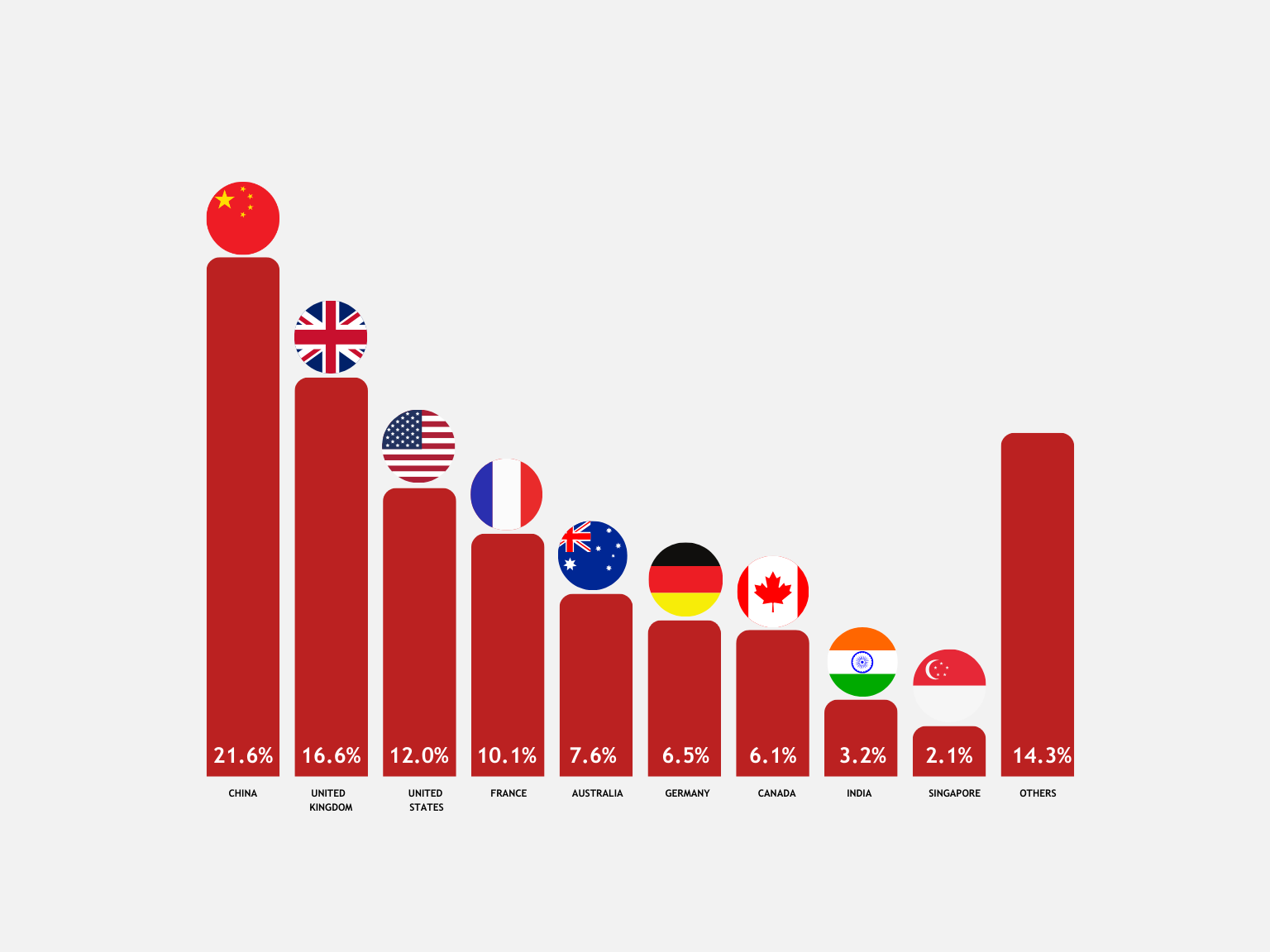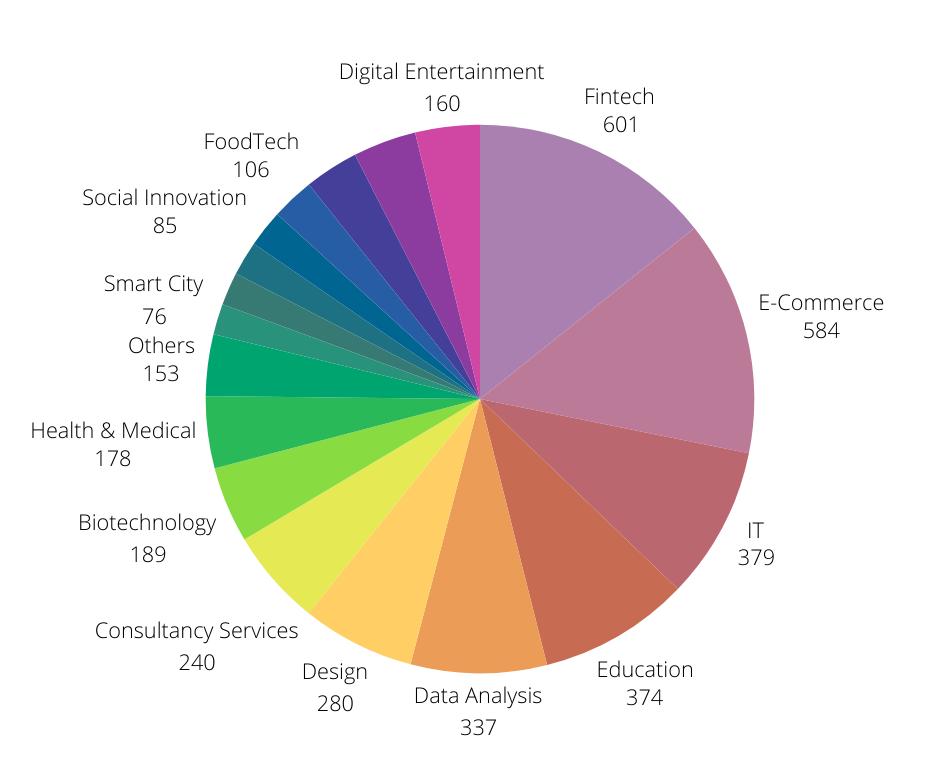
Hong Kong’s startup ecosystem is thriving, supported by a solid legal and financial structure, government support, and a robust infrastructure with excellent connectivity.
This environment equips Hong Kong startups with the tools and resources for success. It offers a diverse market with ample growth opportunities across sectors such as edtech, biotech, fintech, and IoT.
Accelerators, incubators, and co-working spaces further enhance this dynamism, fostering rapid growth and collaborative development among entrepreneurs in the Hong Kong startup scene.
Despite a favourable backdrop, Hong Kong startups face challenges that can impede growth, including funding issues, talent acquisition, market entry barriers, and regulatory compliance. Addressing these challenges is crucial for navigating the complex landscape of startup success in Hong Kong.
Get The Free Visual Guide Here
"*" indicates required fields
Why Hong Kong?
Hong Kong’s allure for startup founders can be attributed to a combination of appealing factors. Its straightforward tax regime, characterised by low rates and easy access to international and regional markets, lays a strong foundation for business growth.
Funding is readily available, and the proximity to business opportunities in Mainland China is advantageous. Additionally, the free flow of information is a significant draw.
The region’s robust entrepreneurial culture and the high productivity levels of its workforce further bolster Hong Kong’s reputation as an ideal base for startups looking to reach into the expansive Guangdong-Hong Kong-Macao Greater Bay Area and across the Asian continent.
Startup Funding In Hong Kong
Hong Kong is a thriving startup hub, bolstered by various funding programmes to nurture entrepreneurs.
These initiatives are crucial in enhancing the city’s business ecosystem, supporting ventures in increasing competitiveness, expanding markets beyond Hong Kong, and leveraging technology for growth, catering to innovative enterprises’ varied needs.
| Funding Programme | Total Cumulative Funding Amount | Handling Department/Institution | Percentage of Funding Support | Objective |
|---|---|---|---|---|
| Dedicated Fund on Branding, Upgrading and Domestic Sales (BUD Fund) | HK$7,000,000 | Hong Kong Productivity Council | 50% |
|
| SME Export Marketing Fund (EMF) | HK$1,000,000 | Trade and Industry Department | 50% |
|
| Technology Voucher Programme (TVP) | HK$600,000 | Hong Kong Productivity Council | 75% |
|
Please note that the table provided is not exhaustive. For a comprehensive list of funding schemes available to support startups and SMEs in Hong Kong, we encourage you to visit the Hong Kong Trade Development Council SME Support website.
This resource offers detailed information on various funding programmes tailored to assist entrepreneurs in navigating Hong Kong’s vibrant business landscape.
Hong Kong Continues To Attract The World

Hong Kong’s startup landscape remains a magnet for global talent, with 68% of founders identifying as locals, 6% as returnees, and a significant 26% coming from abroad.
Mainland China leads in representation among these international founders, with the United Kingdom, United States, France, and Australia also contributing to the city’s diverse entrepreneurial community.
Startups Across a Broad Spectrum of Industries

Hong Kong continues to charm a broad spectrum of startups, with FinTech leading the pack. Businesses in E-commerce, supply chain management, logistics technology, ICT, and educational technology trail this sector. Notably, FoodTech has seen significant growth, reflecting escalating market interest in food research and development and a greater consumer focus on food quality and safety.
Challenges Faced By Startups

Funding and Capital Access:
Hong Kong startups face funding challenges due to high living costs, a competitive market that favours unique business models, and a developing investment ecosystem with a limited pool of local investors. Startups targeting global expansion are more likely to attract investment. To address these challenges, entrepreneurs must network extensively, take advantage of government policies, and explore alternative funding sources like angel investment, crowdfunding, and industry grants.
Talent Acquisition and Retention:
Talent acquisition is competitive in Hong Kong, with a limited pool of skilled candidates. Retaining talent is also challenging; startups must offer competitive compensation and benefits to prevent talent from moving to other companies. Creating a positive, flexible work culture and providing opportunities for professional development are essential strategies to enhance talent acquisition and retention.
Market Entry and Expansion:
Hong Kong startups often need help adapting to new markets, particularly when there are cultural differences or a lack of market knowledge. Successful expansion requires thorough market research, strong local partnerships, and adapting products or services to local needs to meet customer requirements and overcome entry barriers.
Regulatory Compliance and Legal Considerations
Compliance with Hong Kong’s regulations is crucial for startups to avoid legal issues. Startups need to understand and adhere to the complex regulatory environment, seek legal advice, stay informed about regulation changes, and utilise government resources to ensure they meet all legal requirements for operation.
Hong Kong’s Startup Outlook for 2024

As we look towards 2024, Hong Kong’s startup ecosystem is positioned for vibrant growth, reflecting its status as a dynamic hub for innovation and entrepreneurship.
The diversity in the startup landscape underscores the region’s strengths across various sectors, from artificial intelligence to financial services, e-commerce, healthcare, logistics, and more. Here’s an overview of what we can expect in 2024 based on findings from GrowthMentor.
Continued Growth in AI and Technology: Startups like SleekFlow and AiONE highlight the potential for artificial intelligence to revolutionise business operations and development. The focus on AI-powered solutions is expected to drive efficiency, enhance customer experiences, and foster innovative business models.
FinTech and Financial Services Evolution: With companies like First Digital Trust and YAS Digital Limited at the forefront, Hong Kong’s FinTech sector is set to further innovate in digital asset management and insurance. Adopting blockchain technology is anticipated to streamline operations and enhance security, offering more robust and innovative financial solutions.
E-Commerce and Retail Innovation: Return Helper and Peeba show that the e-commerce sector is evolving to meet the demands of merchants and consumers. The emphasis on logistics and supply chain solutions, along with wholesale marketplaces, is expected to facilitate smoother operations and greater accessibility to products and services.
Healthcare and Wellness Focus: The success of startups like Amma reflects a growing focus on healthcare and wellness, particularly in family and women’s health. Personalised health apps and digital platforms will likely increase adoption, offering accessible and reliable health information and services.
Logistics and Supply Chain Enhancements: The logistics sector, represented by companies such as Jumppoint, is poised for significant advancements. Integrating technology into logistics and supply chain management will address the increasing demand for efficient, reliable delivery services, particularly in e-commerce.
Expansion of SaaS Platforms: The rise of SaaS platforms like SleekFlow and WATI indicates a trend towards cloud-based solutions that enhance customer engagement and streamline business processes. This sector is expected to grow as businesses seek scalable, flexible solutions for communication and management.
Innovation in Home Services: Startups like Papabo are transforming the home services industry by integrating technology into traditional sectors like handyman services, indicating a trend towards digital solutions that offer convenience and efficiency for consumers.
Where To Next?
Entrepreneurs and business leaders eyeing Hong Kong’s thriving startup ecosystem are met with a landscape brimming with opportunities and challenges. Successful navigation through the intricacies of business incorporation, regulatory compliance, and ongoing management is paramount in this energetic environment.
Reach out to InCorp Hong Kong to begin your entrepreneurial journey in Hong Kong and take a decisive step towards a prosperous future in one of the most dynamic markets in Asia.
Frequently Asked Questions About Startup Outlook in Hong Kong
How do I open a startup in Hong Kong?
- Acquaint yourself with local entities and bodies
- Select a name for your company
- Determine your company's legal structure
- Designate a company secretary
- Choose your company's official address
- Compile the necessary documents for incorporation
- File with the Companies Registry
- Remit the required government fee
- Obtain the necessary permits and licenses
- Maintain compliance with tax obligations and financial reporting requirements
Read our full guide or contact our consultants directly.
How to get funding startup in Hong Kong?
- In addition to government funding support schemes, startups can look into alternatives, just to name a few:
Incubation & Acceleration Programmes:- Brinc
- Cyberport
- Accenture FinTech Innovation Lab Asia Pacific
- Hong Kong Angel Investment Network
- AngelHub
- Avantfaire
What is the most popular business in Hong Kong?
- Read our guide on the best businesses to explore in Hong Kong.

